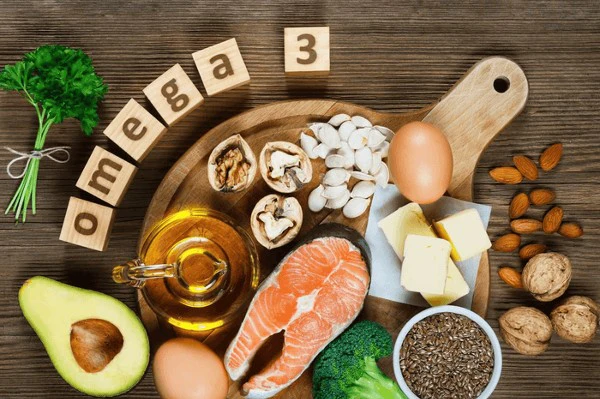
Introduction
Hormonal balance is essential for overall health and well-being in women. An imbalance in hormones can lead to issues such as irregular menstrual cycles, mood swings, weight fluctuations, fatigue, and skin problems. A well-planned diet plays a crucial role in supporting hormone health naturally. This article explores the best dietary choices to maintain hormonal balance in women.
Nutrient-Rich Foods for Hormonal Balance
1. Healthy Fats
Fats are essential for hormone production and regulation.
-
- Avocados: Rich in monounsaturated fats that support hormone synthesis.
- Olive Oil: Contains anti-inflammatory properties that aid hormone function.
- Coconut Oil: Supports thyroid function and metabolism.
- Flaxseeds & Chia Seeds: Provide omega-3 fatty acids and lignans that help regulate estrogen levels.
2. High-Fiber Foods
Fiber aids in detoxifying excess hormones and supports digestion.
-
- Leafy Greens: Spinach, kale, and Swiss chard enhance estrogen metabolism.
- Legumes: Lentils and chickpeas provide fiber and plant-based protein.
- Whole Grains: Quinoa, brown rice, and oats stabilize blood sugar levels and prevent insulin spikes.
3. Protein-Rich Foods
Adequate protein intake is necessary for hormone synthesis.
-
- Eggs: Contain choline and vitamin D, which are vital for hormone production.
- Fatty Fish: Salmon, sardines, and mackerel provide omega-3s that reduce inflammation.
- Lean Meats: Chicken and turkey help with hormonal regulation.
- Tofu & Tempeh: Plant-based phytoestrogens that aid estrogen balance.
4. Fruits for Hormonal Balance
Fruits provide essential vitamins and antioxidants to support hormone health.
-
- Berries: Blueberries, raspberries, and strawberries reduce oxidative stress and support adrenal function.
- Bananas: High in vitamin B6, which helps regulate mood-related hormones.
- Pomegranates: Help regulate estrogen levels naturally.
- Citrus Fruits: Oranges and lemons support liver detoxification and hormone regulation.
5. Cruciferous Vegetables
These vegetables support hormone detoxification and liver function.
-
- Broccoli & Cauliflower: Contain indole-3-carbinol, which helps break down excess estrogen.
- Brussels Sprouts: High in fiber and antioxidants that promote hormonal balance.
- Cabbage: Supports liver detoxification for hormone regulation.
6. Fermented Foods
A healthy gut is crucial for hormone balance.
-
- Yogurt: Provides probiotics that aid digestion and hormone function.
- Kimchi & Sauerkraut: Maintain a balanced gut microbiome.
- Kefir: A probiotic-rich dairy product that supports hormone regulation.
7. Hydrating Foods & Beverages
Proper hydration is essential for hormonal balance.
-
- Water: Helps flush out toxins and supports metabolism.
- Herbal Teas: Green tea and chamomile tea reduce stress and inflammation.
- Coconut Water: Replenishes electrolytes and supports adrenal health.
Foods to Avoid for Hormonal Imbalance
Certain foods can disrupt hormone levels and should be limited.
-
- Processed Foods: Contain artificial additives that may interfere with hormones.
- Refined Sugar: Causes insulin resistance and hormone fluctuations.
- Excess Caffeine: Increases cortisol levels and disrupts sleep patterns.
- Alcohol: Impacts liver function, making it harder to detoxify excess hormones.
How to Maintain a Hormone-Balancing Diet
-
- Prioritize Whole Foods: Focus on fresh, unprocessed ingredients.
- Eat a Variety of Nutrients: Incorporate healthy fats, fiber, proteins, and antioxidants.
- Stay Hydrated: Drink plenty of water and herbal teas.
- Manage Stress: Reduce cortisol levels through meditation, yoga, and quality sleep.
Conclusion
A well-balanced diet plays a significant role in maintaining hormonal health in women. Including nutrient-rich foods such as healthy fats, fiber-rich vegetables, lean proteins, and antioxidant-packed fruits can support hormone balance naturally. Avoiding processed foods, refined sugars, and excessive caffeine further enhances hormonal regulation. Pairing a wholesome diet with a healthy lifestyle promotes long-term well-being and overall health.

